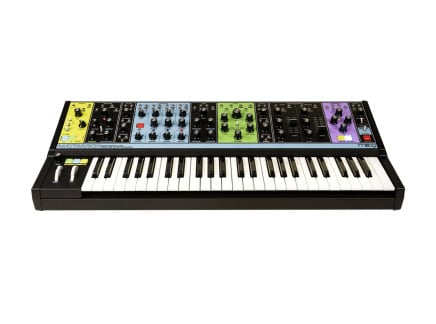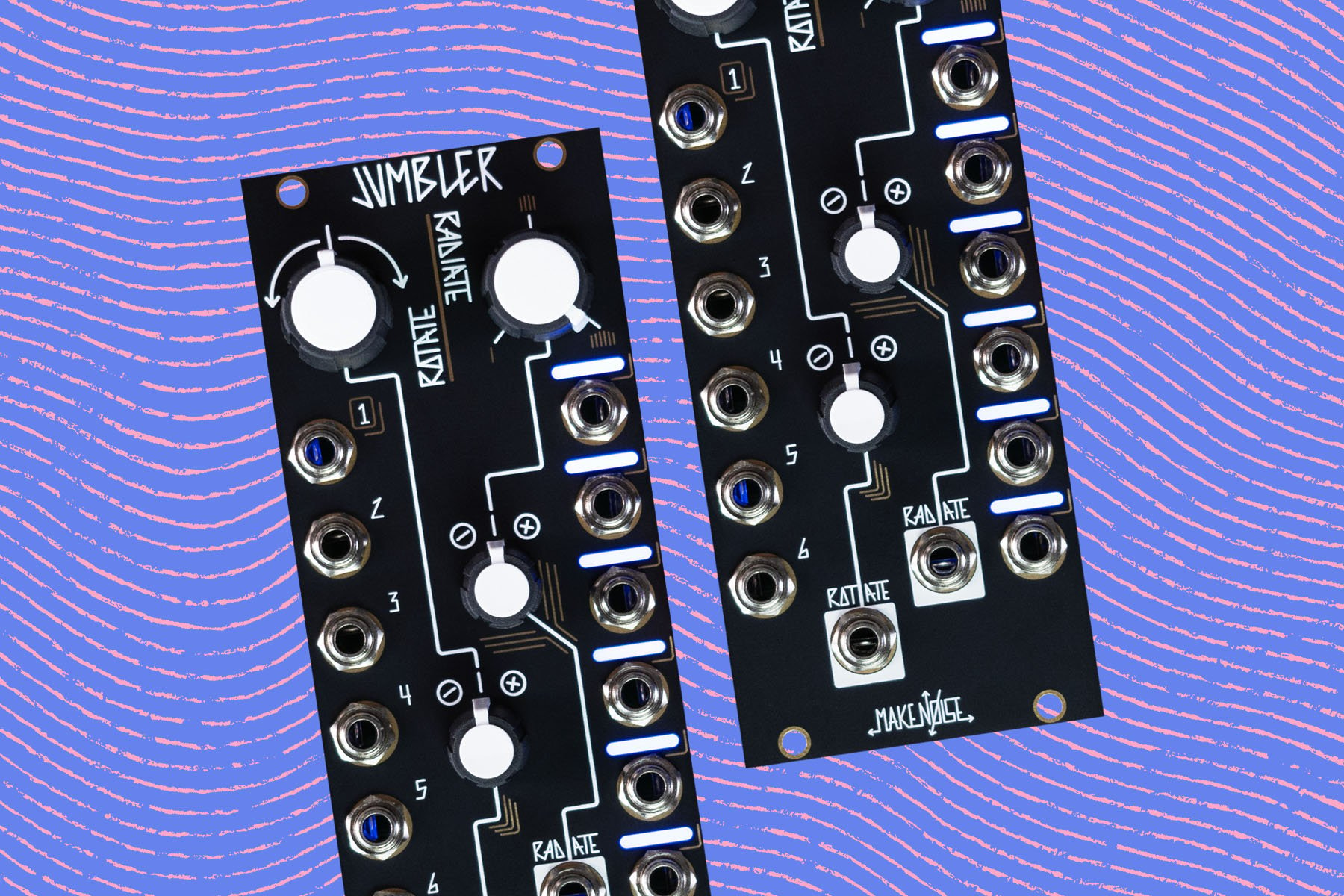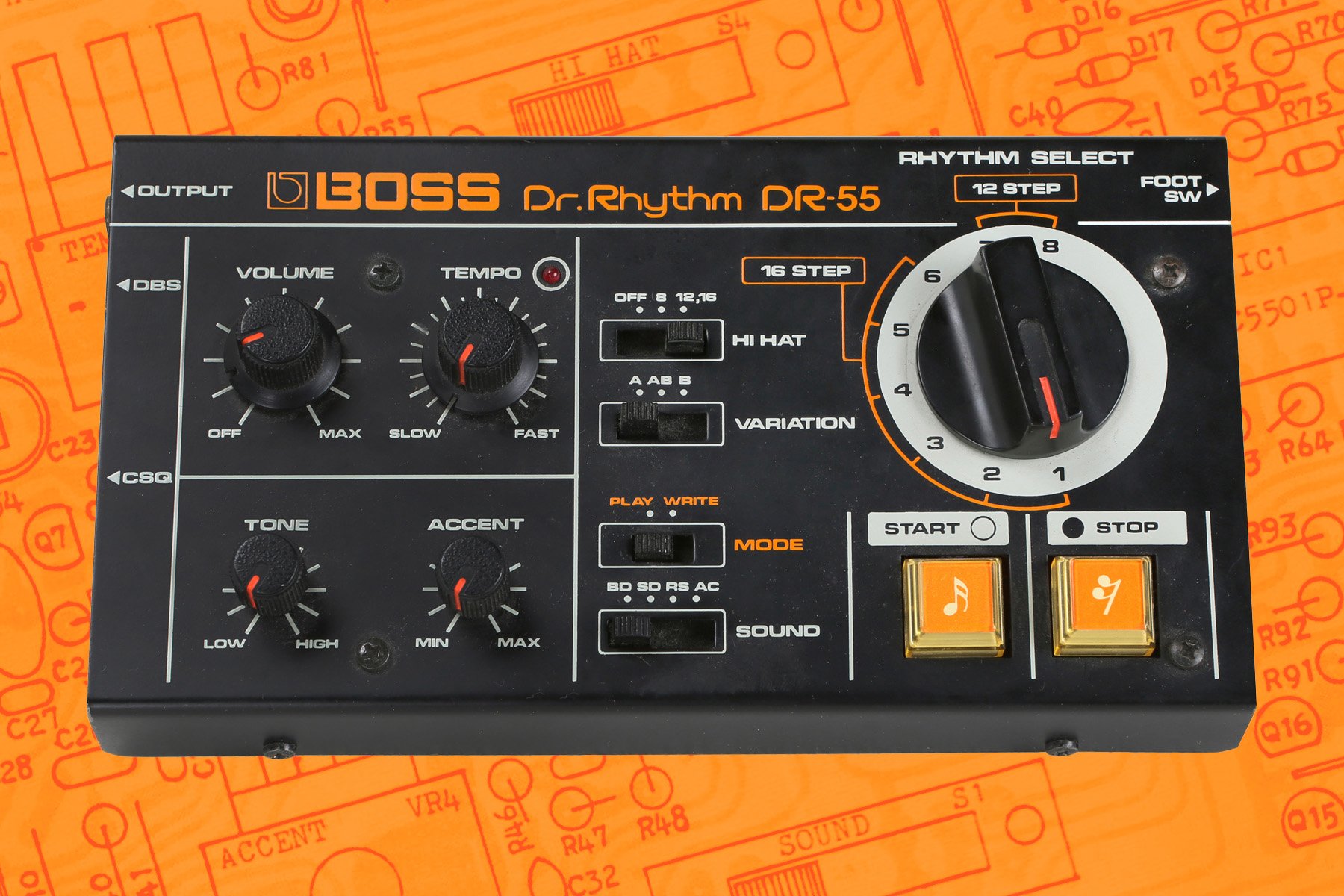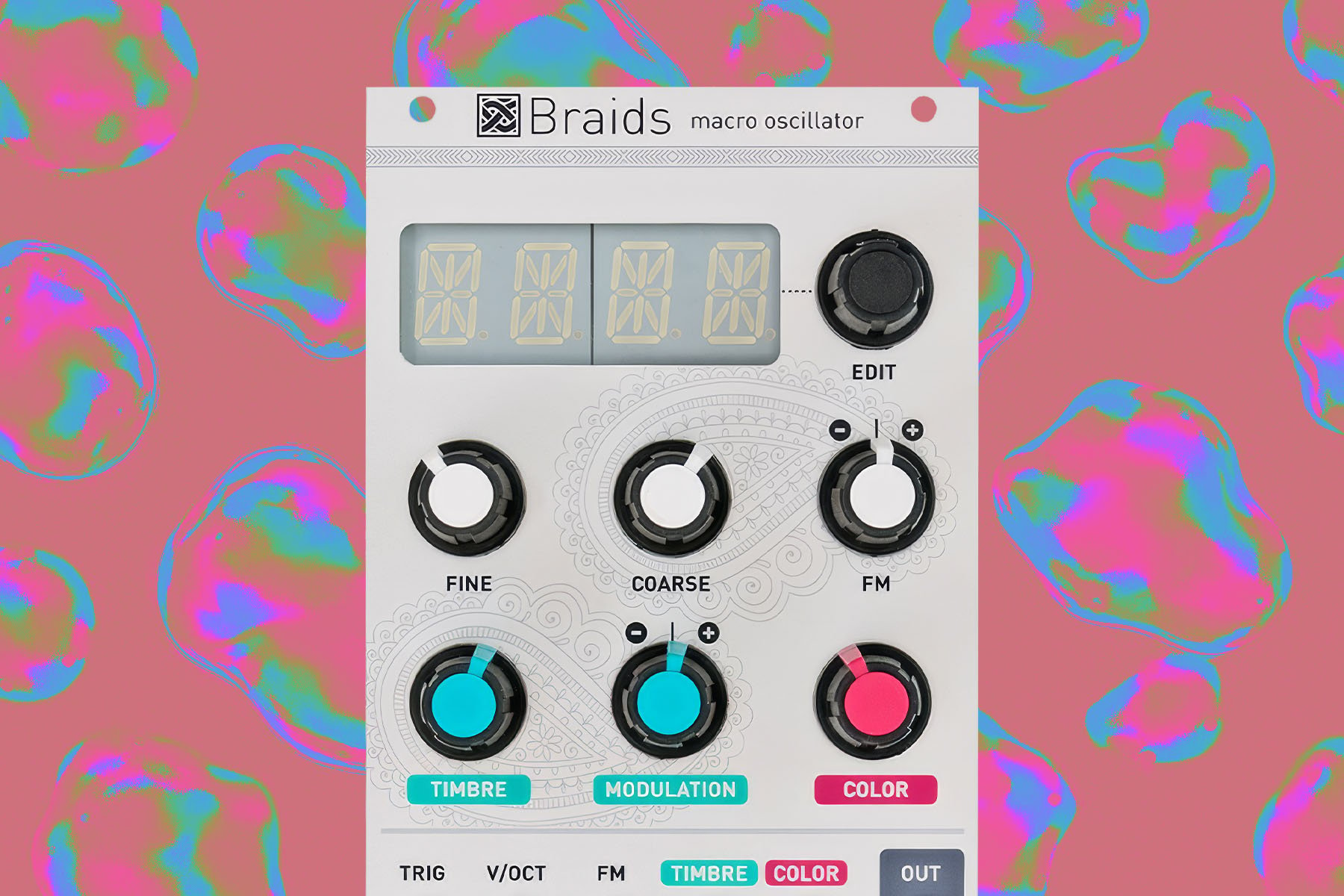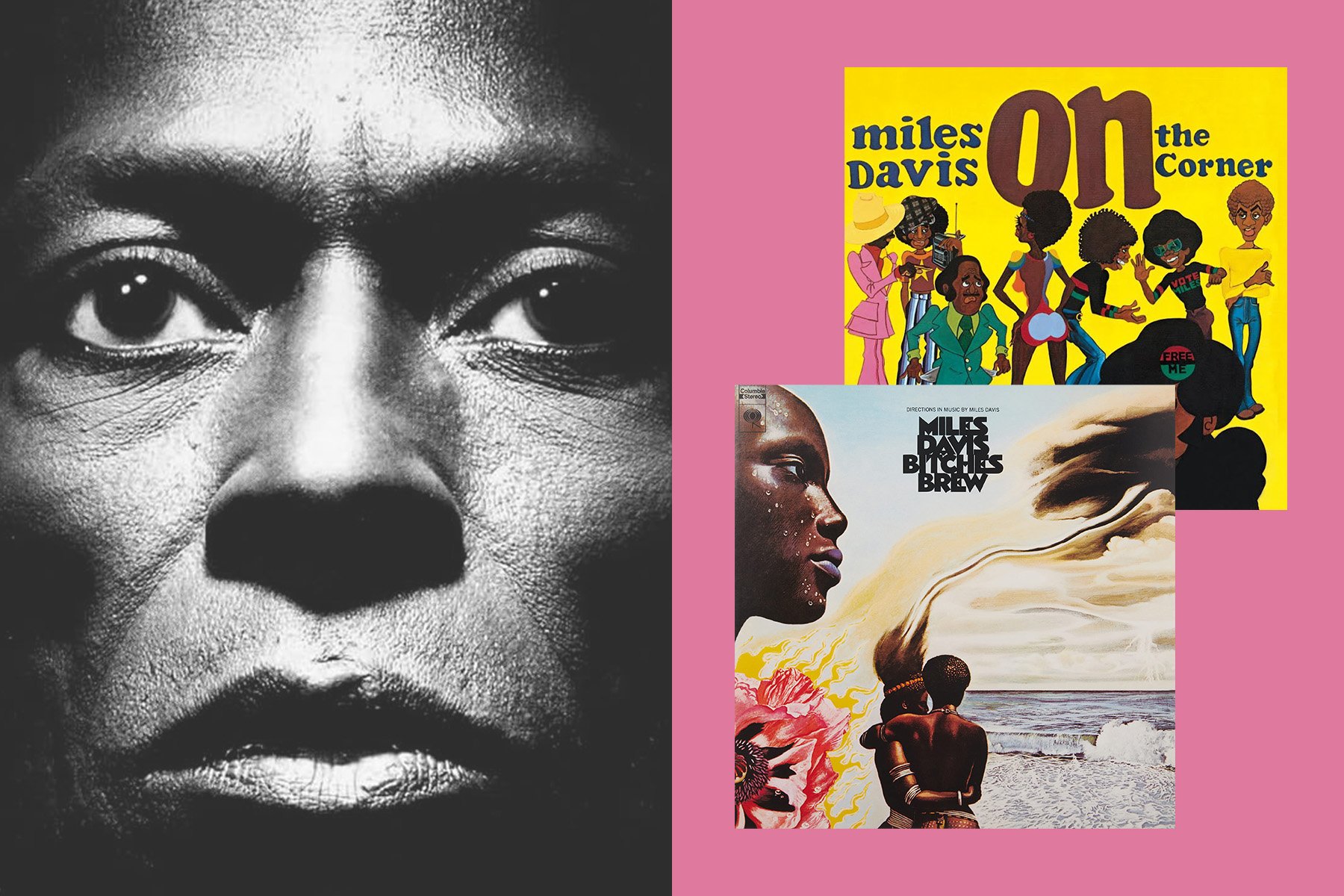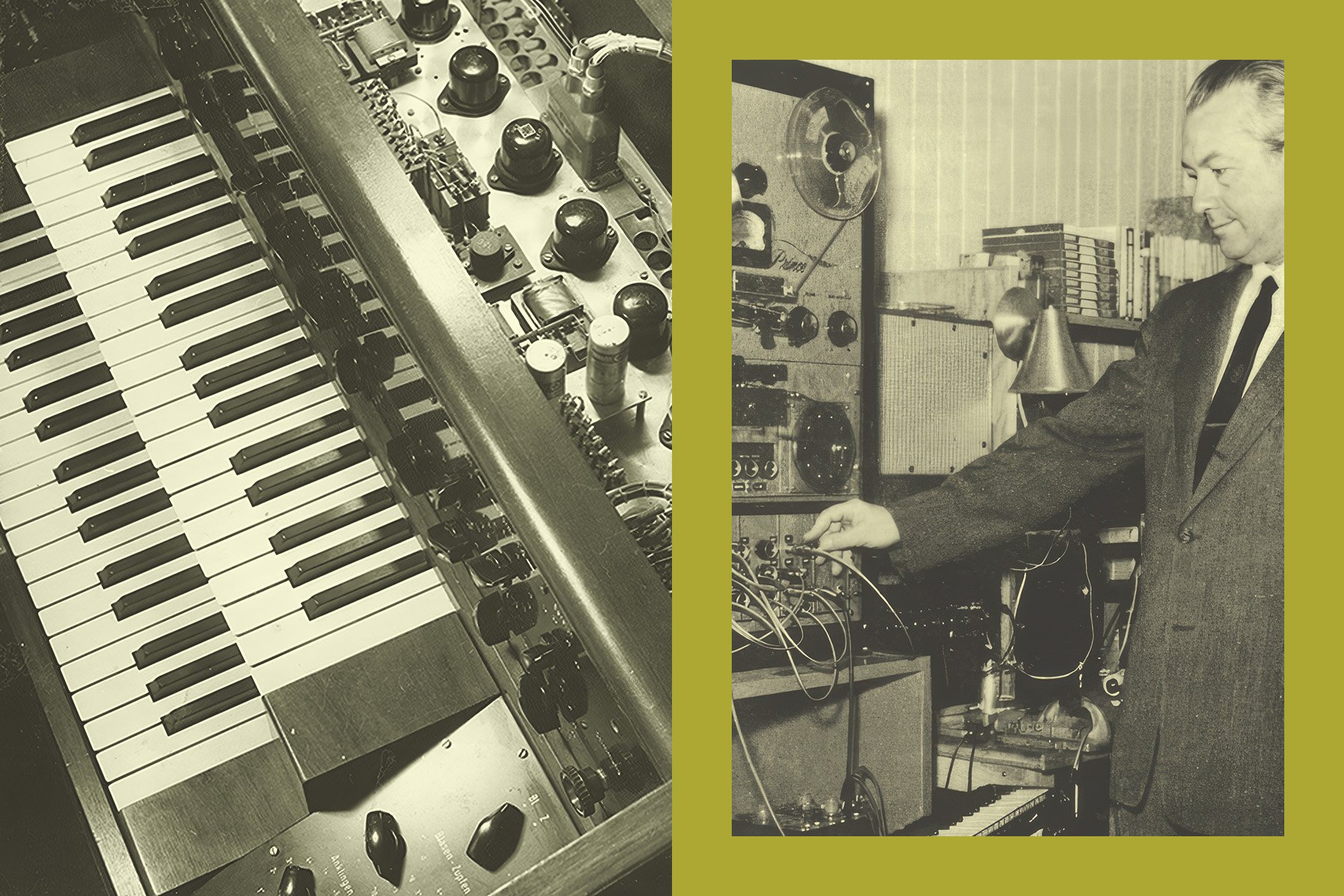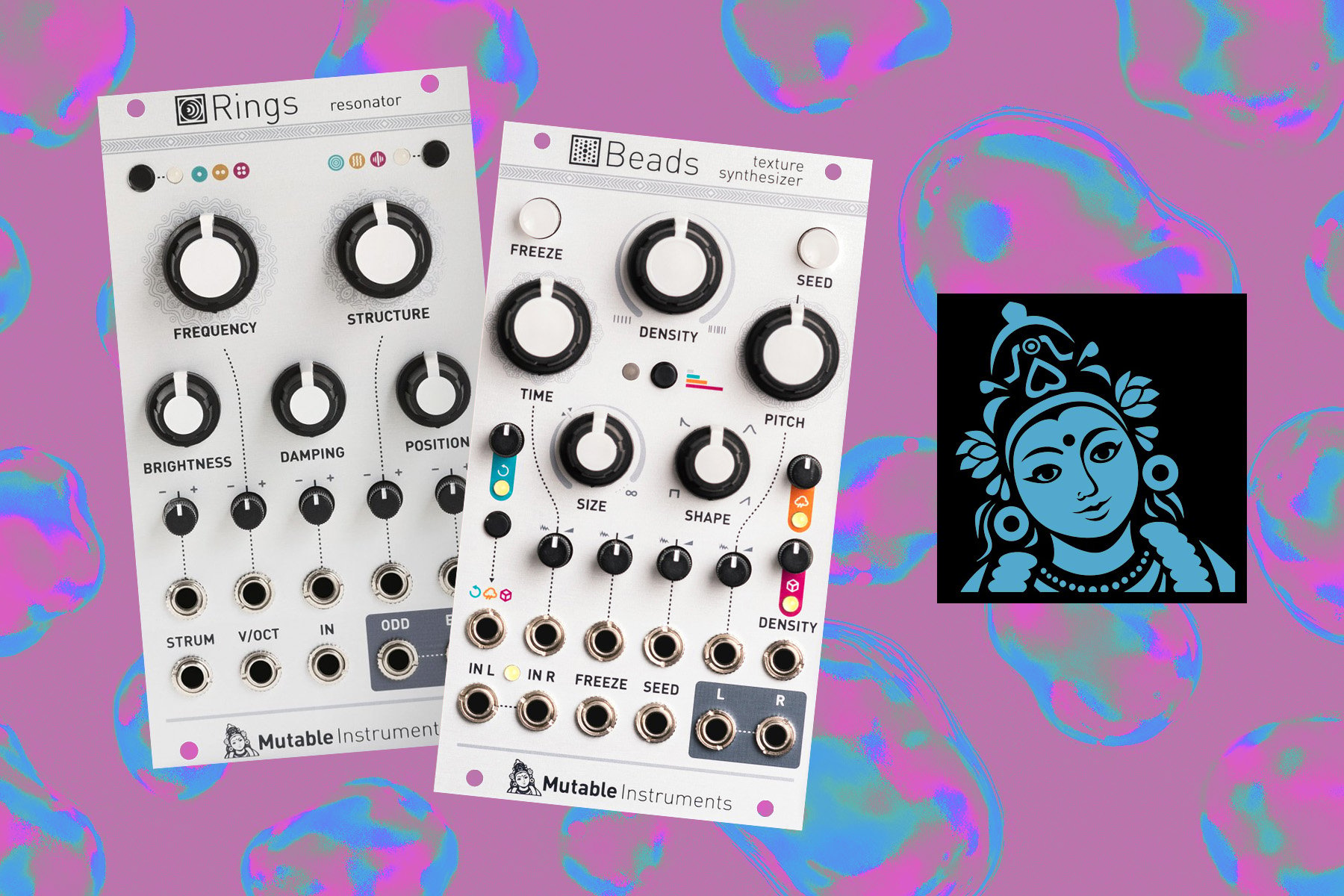Being a professional working musician is no easy task. It requires talent, knowledge, skill, and a strong handle on time management. Perhaps most importantly, though, it requires a desire for continual self-improvement: a desire to constantly learn, refine, and to continue to commit to oneself. It's a lot of work, and not every musician can do it...but Maude Vôs certainly can.
Maude Vôs is a producer, composer, DJ, and live performer who works primarily out of her own personal studio in the Arts District of downtown Los Angeles. Working on everything from studio production to sound design and scoring for short films, fashion shows, and galleries, she has no shortage of interesting projects under her belt. Beyond that, she (along with Marie Nyx) runs Delusional Records, a label that has put out out a unique blend of house, techno, and leftfield electronica since 2021, focusing on music by women, nonbinary, and queer artists.
No doubt, Maude has a ton of interesting thoughts about gear, musicianship, and what it takes to make a living in music. We recently spent a day at her personal studio talking shop and getting to know her—check out the video above for some highlights of our conversation, and read on for some of our favorite takeaways.
Maude Vôs at a Glance
While her most obvious influences may come from leftfield electronica, pop, and experimental music, Maude Vôs has always had a strong love of all sorts of music. She grew up listening to Orbital, The Prodigy, Groove Armada, and Crystal Method—but her musical interests branch well beyond that. With a music collection that includes everything from world music, '80s classics (Madonna, Eurythmics, Depeche Mode), The Cure, queer party music, and well beyond, she tries to pull influences together from all styles.
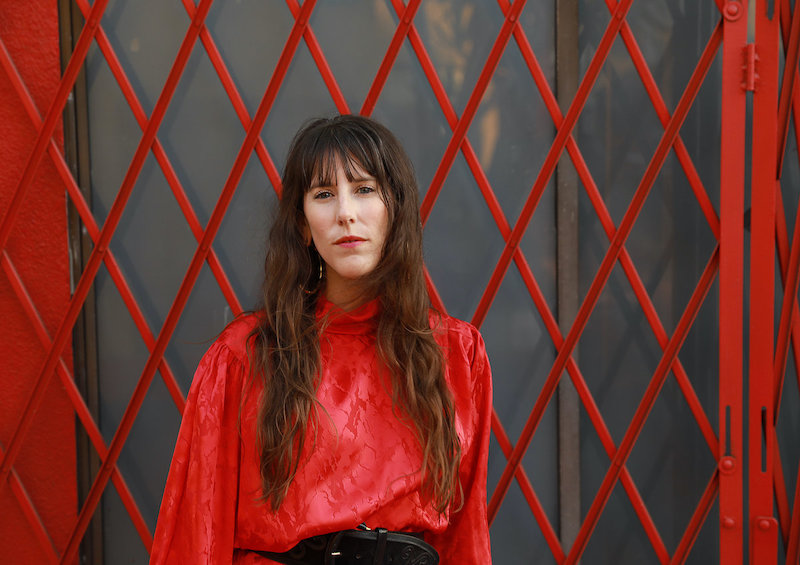
She has multiple music degrees—one in media music, one in recording technology. She spent the first part of her professional life teaching beatmaking and production to women and at-risk youth with nonprofits; she also has extensive experience in the professional audio sphere, in the context of studio/sound system design/planning/setup. All that to say that she has a lot of real-world experience, all of which led her to where she is now: a self-employed musician/producer working from her own space.
Talking About Workflow
Maude notably takes a roughly half in-the-box, half hardware-based approach to composition and production. Her first five years or so of production were done purely in-the-box, back in the days of Ableton 8...when the current "analog resurgence" was only just beginning. However, when she got her first synthesizer, a classic Roland JX-3P, things took a turn: the hands-on approach felt like it provided significant strengths that weren't entirely possible with software alone. She soon after acquired more hardware—Korg Volcas, a microKORG, a PG-200 programmer for the JX-3P—and her setup has been in a state of development/evolution ever since.

However, the hands-on approach of hardware isn't necessarily superior to software for her: in her own words, she still does the "analog/digital push/pull," having built a personal studio workflow that incorporates both sides in a way that highlights each of their strengths. Being able to pull equally from her skills as a producer and as a synthesist means that using both worlds together is natural for her, allowing her a more seamless, fluid process of creation. For instance, when discussing her difference in approach between the software and hardware side of things, she had this to say:
"I love obviously the sound and the width and the fidelity that I get from my hardware synthesizers; like, there's nothing that beats that. I also love, kind of, the endless possibilities that semi-modular and modular synthesis allow. I really can just get a really interesting signal chain going, and just a multitude of effects processing. But sometimes, I want to use an arpeggiator from Ableton, and send that arpeggio sequence from my Push to my ARP or my Matriarch, and that feels really expressive for me."
But that level of cross-paradigm fluidity isn't necessarily easy to achieve. Using her background in pro audio design and computer production has actually led her to create a workflow that we find quite unique and notably well-thought-out—one that allows her to access a wide range of recording/processing scenarios very quickly.
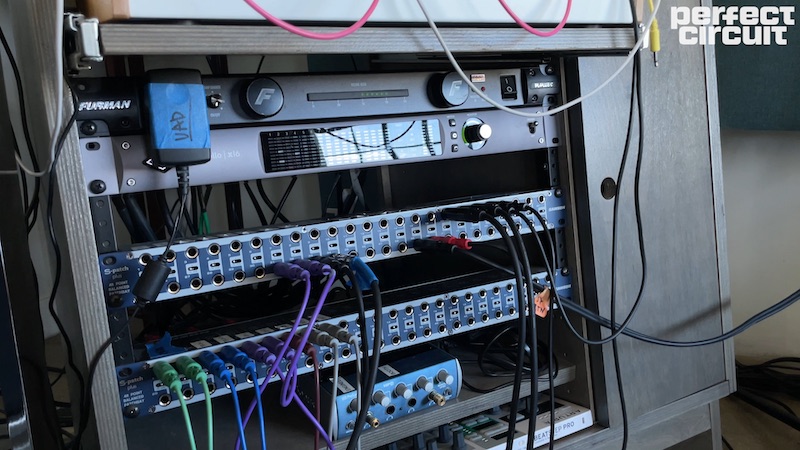
Maude's studio setup hinges around an Apollo x16, a couple of Samson S-Patch patch bays, and an Alyseum U3-88c MIDI interface to communicate between Ableton and all of her various devices. All of her synths and drum machines—ranging from a Moog Matriarch and Korg ARP 2600 reissue to classic Korg Electribe EMX-1—are always connected to the patch bay and MIDI interface, and can be easily recorded at a moment's notice without the need for significant re-patching. Moreover, the way her effect routing is set up, any and all sound sources can easily be processed using three dedicated send/return channels from the interface, which connect to a Korg KP-3 Kaoss Pad, Roland RE-301 Chorus Echo, and Hologram Microcosm, respectively.
Many home studios ignore this part of things. Having the ability to instantly start recording or processing any sound source in any way can be the thing that allows you to stay in a creative flow state: not needing to fiddle with plugging things in, pulling instruments off of a shelf, etc. can be the difference between getting work done or not.
Maude is also an outspoken proponent of multi-tracking—a topic that we've found many musicians have mixed feelings around. While there's definitely an understandable appeal to capturing things the way that they happen in the heat of a performance, there's also a huge number of compelling reasons to multi-track everything, even your jams.

In describing her creative process, Maude said that many ideas can start out as jams, using her arsenal of tools to create a basic, rough musical idea. When everything in a jam like this is multi-tracked, though, it enables the opportunity for further refinement. As a producer, Maude has an ear for detail and a desire to polish her work and make everything sound as good as it possibly can—multi-tracking makes it possible to take the most exciting/compelling aspects of a jam and to develop them further, using them as the groundwork for a finished track. Jamming is a common way of exploring initial ideas, but from there, she can take the best parts and use them to build more polished tracks, using her years of experience as a producer and her suite of plugins/computer-based tools to really bring them to life. Moreover, this allows her a way to create a more song-like structure for her productions—very intentionally crafting a song's pacing and sense of tension/release. This type of attention to detail is difficult to achieve in an improvised solo jam...but when you can take all of the individual elements of a jam apart, they can become the raw materials for a powerful, evocative recording.
Dedicating Space & Time
Learning about Maude's studio workflow was already thought provoking enough...but some of the most interesting parts of our conversation came along when asking about how she decides on a new piece of gear.
For her, an ideal new piece of gear strikes a balance between immediacy and inspiration. It's important to choose tools that you know you'll be able to get use out of straightaway—but that isn't to say that learning curves are bad. Rather, picking new gear can be a way of forcing yourself to develop your own knowledge, and to push your own sound forward. A learning curve is just a way of presenting yourself with a challenge...a challenge that, if approached right, will help you grow as both a technician and a musician. In a way, it's a form of commitment to oneself.

That brings us to one of the other particularly interesting takeaways from our visit. When asking Maude about the importance of having one's own studio space, she had a wide spectrum of thoughtful responses. Right out the gate, she did say that it is important to her to have a dedicated space for making music—be a small space in your home, a rental space, Peerspace, etc...anything can work! From her perspective, having space is an important factor before being able to dedicate time to your practice.
"It's about...having a space in your home, a little realm and a universe to live in . . . to just really dedicate the time, I think the space is important. And the routing, and all of that—but it's about the practice."
From her perspective, having a dedicated space helps to form habits. Partly it's about being able to leave things set up and turnkey, sure, but having a dedicated space also makes it easier to build a routine. If you have a space whose purpose is purely for creation, over time, it becomes easier to use that space as way of getting directly into the flow of creation. It allows you to avoid interruptions, to tune out the rest of life, and to focus on creating—and the more that is built into your routine, the easier it is to be productive.
Of course, this also requires a keen sense of time management. Maude talked to us extensively about her approach to time blocking, focusing a fixed number of hours per week on specific aspects of her practice: creation/sound design, arrangement/mixing, learning/studio optimization/education (self-education and educating others), and promotion/outreach. These time blocks might look different for different musicians, of course—but the key takeaway, from our perspective, is that having a space and having a schedule can be huge factors on one's productivity as an artist. In her own words, "It's about getting into the practice and committing to yourself."
Committing to Yourself

Hanging out with Maude and picking her brain was no doubt an inspiring time. She has lots of cool gear, a fun space, and a truly smart studio setup—but for me, the most interesting part of our time together was this conversation. Being a productive musician and seeing projects through requires commitment. That commitment can be made simpler in a lot of ways, perhaps most crucially by giving oneself a space for creativity, time for creativity, and deadlines.
The thing is—you don't necessarily need a ton of gear, a whole professional studio, or 40 hours a week in order to get things done. Even if you're working out of a corner of a spare bedroom, or some extra space at the end of your kitchen counter...and even if you're only working for an hour every other day, or a couple specifically scheduled hours per week, you'll be surprised how much you can get done. The space and the time aren't just logistical considerations: they're a mark of commitment to your ideas, and commitment to yourself and the things that bring you joy. Realistically, that is the most important aspect of being a musician, and a key ingredient that is all too easy to overlook.
Be sure to check out Maude's label Delusional Records on Bandcamp and Instagram, and follow her directly on Instagram to keep up with her work!



